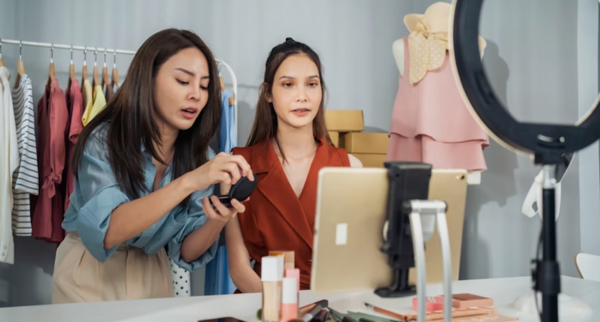
Beauty Brand Success Stories: What Entrepreneurs Can Learn
The beauty industry has become one of the most dynamic and competitive markets in the world, with global revenues exceeding $500 billion and growing steadily. From indie startups to celebrity-founded empires, beauty brands have found ways to thrive by combining innovation, authenticity, and strategic marketing. For aspiring entrepreneurs, these success stories offer valuable lessons—not just in product development, but in branding, customer connection, and business resilience.
Here are key takeaways from some of the most successful beauty brand stories:
1. Start with a Clear Purpose
Take Glossier, for example. Founded by Emily Weiss, the brand began as a beauty blog called Into The Gloss. The blog’s engaged community helped shape Glossier’s first products. Rather than entering the market with a mass-produced line, Glossier created products based on real customer feedback.
Lesson: Purpose-driven brands that solve real problems and engage with customers early build stronger loyalty and trust.
2. Build a Community Before a Product
Fenty Beauty, launched by Rihanna in 2017, disrupted the beauty industry by offering 40 foundation shades at launch—something the market had long overlooked. What made Fenty a game-changer wasn’t just the product range, but how the brand celebrated diversity and inclusion. Rihanna’s existing fanbase helped amplify the message, but it was the community-first, values-driven approach that resonated.
Lesson: Build a community that aligns with your values and includes your target audience in the story. Today, people buy into brands, not just products.
3. Leverage Social Media Authentically
Huda Beauty, started by makeup artist and influencer Huda Kattan, is a textbook example of the power of personal branding. Huda used Instagram and YouTube to showcase makeup tutorials and product reviews, gaining millions of followers long before she launched her brand.
Lesson: Consistent, authentic content can transform a solo creator into a global brand. Engage your audience with value-driven content before selling to them.
4. Focus on Product Excellence
No matter how great your branding is, poor product quality won’t build a sustainable business. The Ordinary, part of DECIEM, gained global popularity with simple, science-based formulations and transparent pricing. Without flashy marketing or celebrity endorsements, the brand earned consumer trust through effectiveness.
Lesson: A great product that solves a real need will speak for itself. Don’t underestimate quality as your core differentiator.
5. Stay Agile and Listen to Your Market
Successful beauty brands don’t just launch and coast. They adapt. Brands like Drunk Elephant and Rare Beauty continuously gather feedback, iterate on formulas, and launch inclusive campaigns.
Lesson: Treat feedback as fuel. In a fast-moving market, agility and responsiveness can be your superpower.
Final Thoughts
The beauty industry rewards innovation, authenticity, and connection. Entrepreneurs hoping to break into the space don’t need celebrity backing or massive budgets to succeed—they need purpose, community, and quality.
By learning from the brands that have risen to the top, emerging founders can carve out their own path to success—one customer, one story, and one great product at a time.
Also Read:
Reed Hastings: Visionary Who Transformed Entertainment
How Fashion Startups Are Disrupting the Industry
What to Do If Someone Wants to Buy Your Business